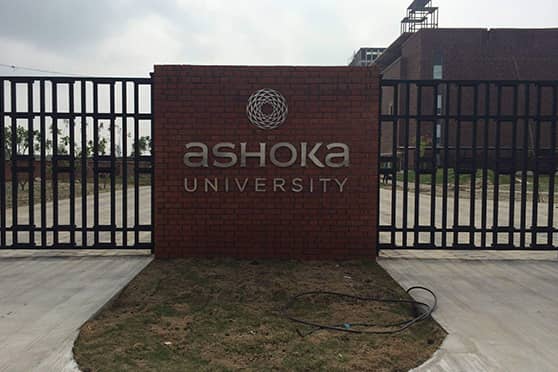Two simultaneous events in the north and south of the country dramatised the unflagging assaults on free learning. At the Indian Institute of Science, Bangalore, Teesta Setalvad was prevented from entering to deliver a talk in a programme the students had organised. Teachers had to insist that she be let in, and the talk, on communal harmony and justice, was held in front of the canteen and not in an auditorium. Meanwhile, a senior economist resigned from Ashoka University in support of a colleague who had left because his paper was subjected to an investigation by the governing body. The paper, named “Democratic Backsliding in the World’s Largest Democracy”, discussed certain aspects of the 2019 Lok Sabha elections by using mathematical tests. Here, too, teachers intervened, stating that they will not carry out their duties if the paper’s author is not invited back. Their other condition was that the management shall not interfere in academic work.
Academic freedom, the freedom to pose difficult questions, discussions about society, history and science, the freedom to express ideas and opinions — all that the university space gifts to students, teachers, scholars and researchers — are being systematically attacked. Learning and critical thought must cease. For these two institutions, this was not the first taste of oppression. In February, over 500 scientists and scholars wrote to the IISc, Bangalore, administration, objecting to its refusal to admit two activists who came to discuss the criminal justice system. The activists had been jailed earlier for their opposition to the citizenship law. That letter, too, insisted on the freedom to learn, discuss and express. The Ashoka University management, responding to students’ protests when a professor resigned in 2021 because he was considered a ‘liability’, had already promised not to interfere in academic matters.
Ashoka is a private university and the IISc is funded by the Centre. The project to devalue learning does not discriminate, neither does it hesitate to enter all spheres. Overseas grants for research are being restricted, certain research themes being barred to underprivileged students with scholarships and research grants are being reduced. The last is the root of the unrest in South Asian University which caused the expulsion of some students and the suspension of teachers who supported them. Be it Jawaharlal Nehru University or Visva-Bharati University, Aligarh Muslim University, Delhi or Jamia Milia Islamia universities, students and teachers are at equal risk if they speak up for freedom of expression, the freedom to learn, for justice, reason or harmony. Higher education is not the only target either. The earlier dogma is injected into young minds the better. Hence school text-books are changed to suit Hindutva myths and biases, modern science is downgraded, curricula are altered to fit ‘national interest’ and scholarships withdrawn from younger children from underprivileged families.
Education in India is on the edge of destruction. Scholars, scientists, teachers and students are still fighting, but it is a fight for everyone.











